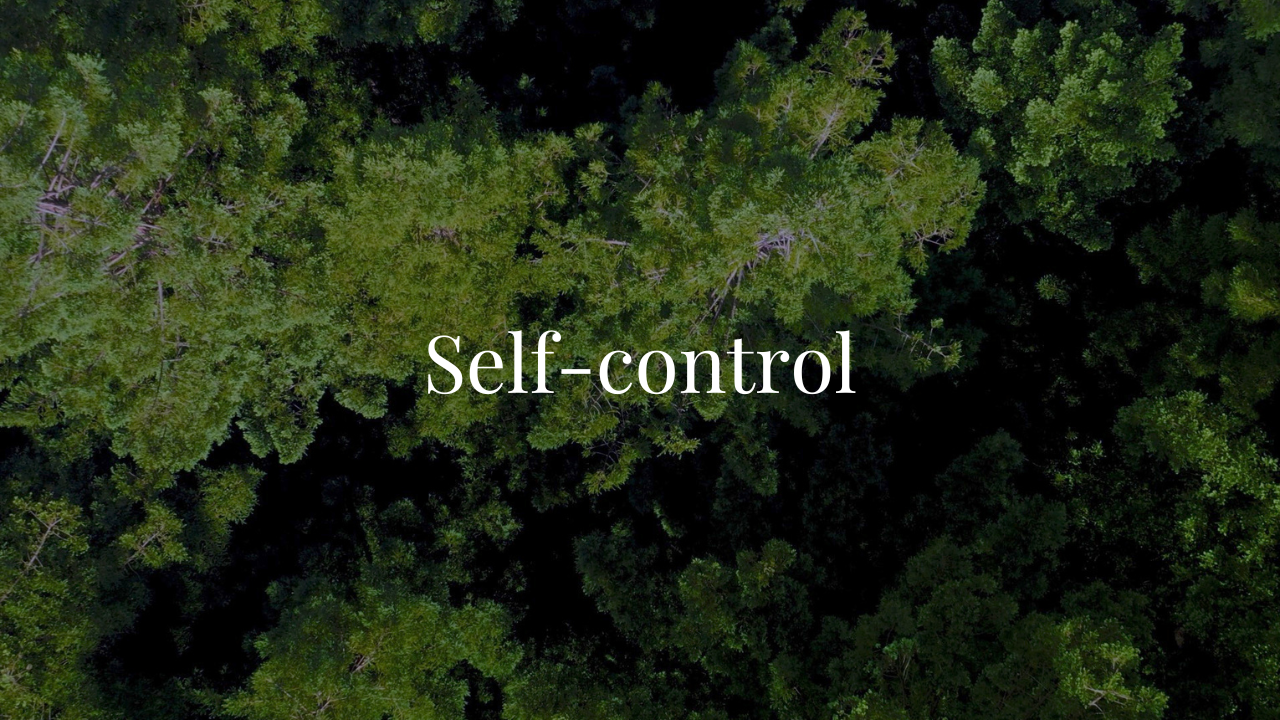The Orchardಮಾದರಿ


Self-Control: John 15:1–17
Read through the poem twice. After taking time on the first reading to familiarize yourself with the passage, on the second, take time to ponder and notice.
Jesus, the True Vine
1 I am the Vine; my Father, the vineyard’s Master.
2 He lops off every unproductive branch
and prunes every fruitful one
to yield even more than before.
3 You’ve already been pruned by my word.
4–5 I am the vine and you are the branches.
Live in me and I will live in you.
The branch cannot produce grapes by itself;
it must draw its life from the stalk.
As I live in those who live in me,
they will produce many clusters of fruit.
The branch can’t grow without juice from the root.
6 If you don’t stay attached to me, you will wither away.
And the master will gather all the useless branches
and throw them into a burning pile.
7 If you stay attached to me
by keeping my words alive in you,
you can ask me anything you desire,
8 as long as it has to do with producing fruit,
for that is how to glorify the Master.
9 As my Father has loved me, I have loved you.
To live in me is to live in my love.
10 As I obey my Father, you need to obey me,
11 then you will stay in my love
and will overflow with my joy.
12 This is my command I want you to heed:
love one another as I have loved you.
13 There is no nobler love than to lay down
one’s life for a friend.
14 You are my friends when you do what I command.
15 From here on in, I will not call you servants,
but my friends, because I will tell you everything
the Father has revealed to me—and more.
16 You didn’t choose me. I chose you to be
my living branches producing lasting fruit.
Whatever you ask the Father in my presence
will be given to you.
17 I give you these instructions
so that you would love one another.
Philip Comfort, The Poems and Hymns of the New Testament. Used by permission of Wipf and Stock Publishers. www.wipfandstock.com
This poem in John 15 follows on from the one in John 14 which was used for Peace. Jesus is telling his disciples what they need to know before his imminent death. Following on from a reassurance of the presence of the Spirit after he leaves, he continues to elaborate on the theme of mutual indwelling by using the metaphor of a grapevine. By using this picture there is a concrete understanding of interconnectedness, with Jesus as the vine and his followers as branches.
This indwelling is a two-way street. In order to remain connected, there must be obedience (which requires self-control) but it is within the context of love. This results in life and fruitfulness while remaining part of the vine.
Jesus also describes what this love looks like and his own sacrificial example which was yet to come. So this means we have come full circle having started with a description of what love is we see its example about to be fulfilled. The end of the poem fits neatly then with a call to “love one another”.
I have tried to convey a sense of that vine image by initially using a fugue format which eventuates in four small contrapuntal melodies. The first is a variation of the Spirit motif and the last is the Love motif. Two of the melodies are reused and developed and the full Love hymn is restated near the end, with subtle references to a number of the other piano pieces in the suite, before ending finally with the Spirit motif as a bookending.
Scripture
About this Plan

The Orchard combines the poetry of the New Testament with piano music inspired by those poems plus beautiful video footage. This series of videos allows space for quiet contemplation allowing the Spirit of Christ to work and speak, in order to continue to produce His fruit in our lives. In writing these piano pieces, mostly on a quiet Sunday afternoon, I have enjoyed the peace and contentment gained from meditating deeply on these poems and I pray the same for you.
More
ವೈಶಿಷ್ಟ್ಯದ ಯೋಜನೆಗಳು

Forgiveness

3:16

Beauty in Belonging: Anchoring in Christ in Every Season by Jenny Erlingsson

Mark Book Study - The Story

Soul Care: Healing From Deep Disappointment
The Bible in 90 Days

Sacred Prayer - a 5-Day Reading Plan

Financial Discipleship – the Bible on Taxes

MultiTracks.com // Advent Devotional Series
